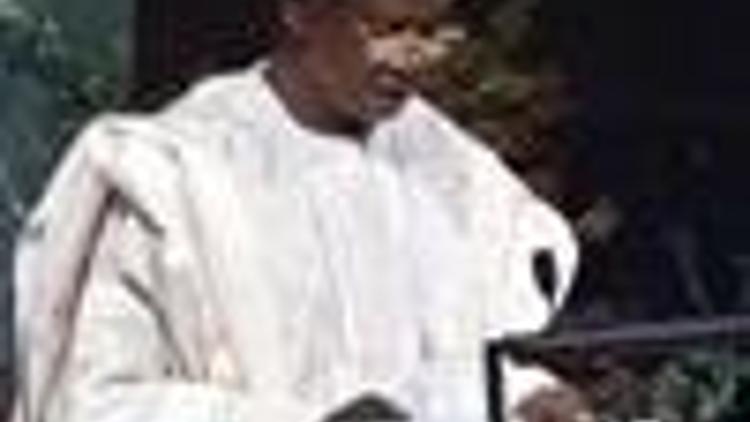Military-led group announces coup in Guinea after president's death
Güncelleme Tarihi:

A military-led group Tuesday took control of the country’s airwaves to declare the government had been dissolved, hours after officials announced the death of Guinea’s dictator. (UPDATED)
"The institutions of the republic have shown themselves to be incapable of resolving the crises which have been confronting the country," Captain Moussa Dadis Camara, army captain, said on state radio.
�
"As of today, the constitution is suspended as well as political and union activity.
"The government and the institutions of the republic have been dissolved," he was quoted by AFP as saying.
A "consultative council" comprised of civilian and military representatives would be set up in their place.
President Lansana Conte, who took power in a military coup after the death of his predecessor in 1984, died Monday night, the country’s National Assembly president announced.
Camara said the impoverished west African country was in a state of "deep despair" and it was vital that there was an upturn in the economy and more was done to combat corruption.
It throws into turmoil the fate of Guinea, a nation of 10 million ruled by only two men since gaining independence from France half a century ago.
AU CONCERNED
The African Union said it was "keenly monitoring" developments in Guinea.
"We pay homage to the memory of the departed head of state, but we are preoccupied and keenly following this development and the succession of president Conte," the AU’s Peace and Security Commissioner Ramtane Lamamra told AFP.
"We urge all the political and other state institutions in Guinea, especially the armed forces, to ensure a constitutional, peaceful and consensual transition that respects democratic order."
Sompare had earlier asked the president of the supreme court to declare the presidency vacant and to apply the constitution, which stipulates that the speaker of the assembly takes over temporarily and has to organize a presidential election within 60 days.
CONTE
Conte, an authoritarian ruler for 24 years, was the country’s second president. He was one of the last members of a dwindling group of so-called African Big Men who came to power by the gun and resisted the democratic tide sweeping the continent.
The 1984 coup was carried out a week after the death on March 26, 1984, of President Ahmed Sekou Toure, who had ruled
Though
As a post-Cold War democracy wave swept the continent, Conte formed a political party and won elections in 1993. He was re-elected in 1998 and 2003, but all the elections were viewed as fraudulent and rejected by
During the last election, rumors of his failing health were already circulating. He was reportedly so ill that he did not even get out of the car to cast his ballot. That winter, he went on TV to put a stop to the rumors of his death. "Everybody dies," he told the nation. "Even the Prophet died. I will die when Allah wants me to."
A similar wave of rumors began gathering force two weeks ago, when Conte failed to make his usual televised appearance on the occasion of a major Muslim holiday. The prime minister and others hurried to make appearances in his place, but people were on edge and numerous businesses shuttered their doors in anticipation of unrest.
Last week, the editor of a local paper was arrested after publishing a picture of the frail leader struggling to stand up. The newspaper was ordered to print a photograph of Conte, showing him in good health.

